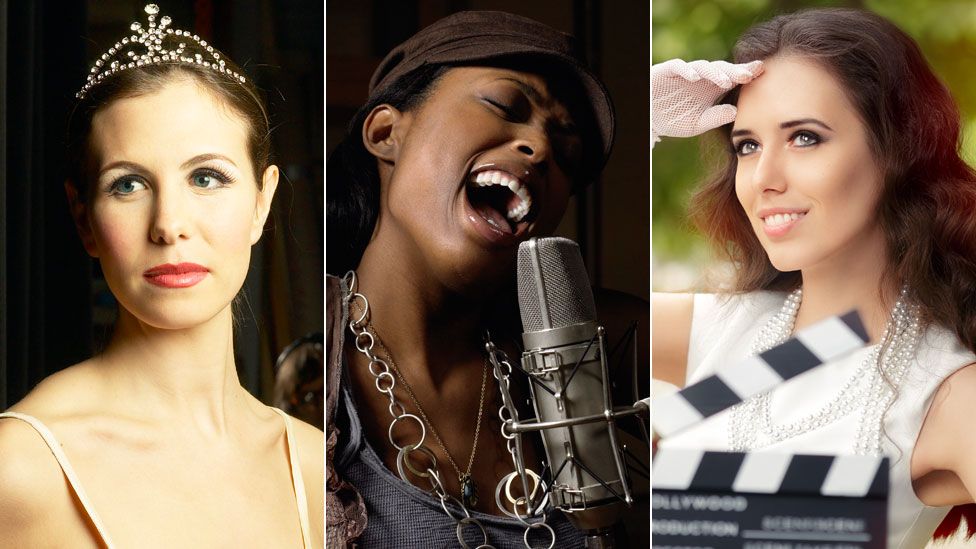Arts suffering from 'class-shaped hole', Labour inquiry finds
- Published

The arts industry is suffering from a "class-shaped hole", a Labour Party inquiry says.
The Acting Up report suggests the high audition costs for drama school is one of several factors deterring people from working class backgrounds from entering the arts.
It also recommends more school trips to the theatre to encourage young pupils.
The government said it was a "priority" to ensure everyone can take part in the arts and culture, including in schools.
Former Coronation Street and EastEnders actress Tracy Brabin, who was first elected as an MP in by election last year, led the inquiry along with fellow Labour MP Gloria De Piero, who worked as a presenter on GMTV before becoming a politician.
Ms Brabin, whose best-known role was as single mother Tricia Armstrong in Coronation Street from 1994 to 1997, said there was a "diversity crisis on our stages and screens".
The report, commissioned by Labour's deputy leader Tom Watson, looked at what more could be done at school level to encourage young people to consider a career in the arts.
It said that drama, and other related subjects, are often treated as inferior at some schools - and that students are sometimes discouraged from studying them.
It also suggested there are poor drama facilities, few arts excursions and a lack of awareness about arts career opportunities in many schools.
The report's recommendations:
- Casting directors should undergo unconscious bias training to stop them from unintentionally discriminating against certain race or class demographics
- More regional productions funded by the Arts Council or the National Lottery should hold their auditions locally rather than in London
- Broadcasters, film companies and theatres should do more to develop working class and diverse talent
- The application process of drama schools should be reformed, with a centralised UCAS-based process introduced for degree-awarding institutions and a flat-rate application fee
- The government should increase funding for schools to take students on trips to the theatre
Ms Brabin, who also worked as a TV writer in her pre-political life, said: "Our performing arts are some of the best in the world and they should represent our whole nation, not just a privileged section of it.
"But the systematic eradication of arts education in schools, sky-high drama school audition fees, chronic low pay and a lack of diversity behind the scenes are all contributing to a diversity crisis on our stages and screens."
The publication of the report follows comments made by presenter Anita Rani last week, who said the pay gap among the BBC's top talent was as much about race and class as gender.
A government spokesman said it was investing £300m between 2016 and 2020 to encourage young people to participate in music and arts.
He said: "We are completely committed to ensuring that everyone has the opportunity to take part in arts and culture, including in schools."
Follow us on Facebook, on Twitter @BBCNewsEnts, or on Instagram at bbcnewsents. If you have a story suggestion email entertainment.news@bbc.co.uk.
- Published4 August 2017